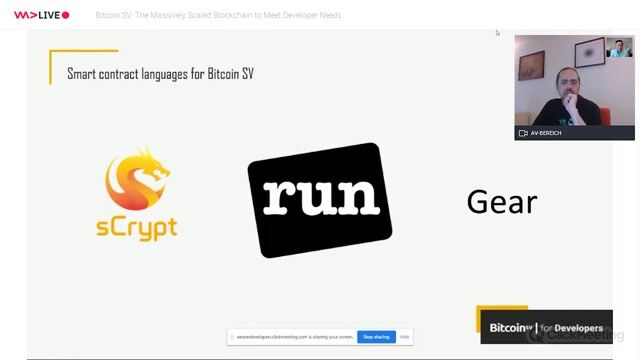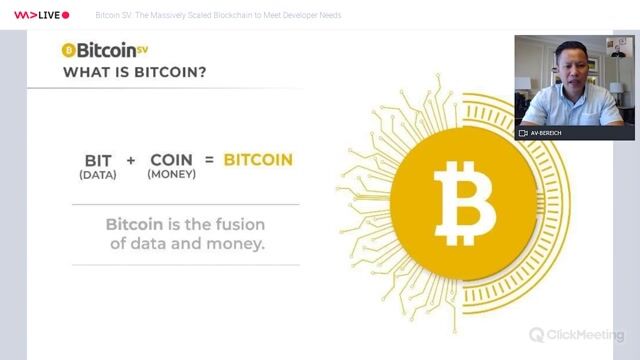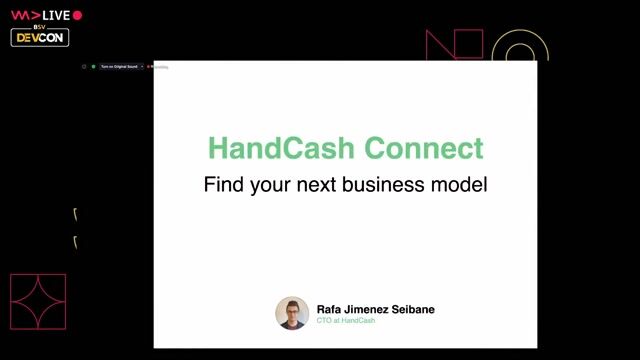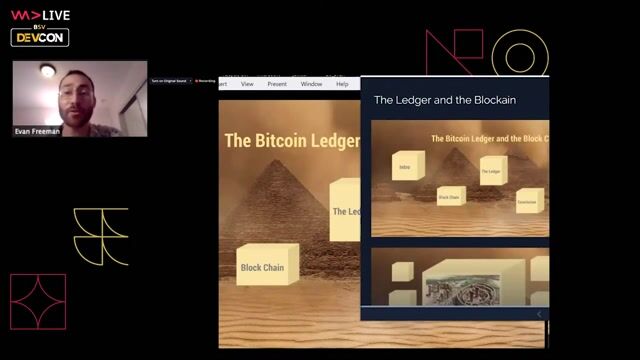Jad Wahab
Miner fee calculation and merchant API - new tools for the Bitcoin SV network
#1about 1 minute
Introducing the Merchant API for Bitcoin nodes
The Merchant API (MAPI) provides a standardized interface for merchants and applications to interact with Bitcoin nodes and miners.
#2about 3 minutes
Revisiting Satoshi's original vision for Bitcoin scaling
Satoshi Nakamoto's early writings envisioned a network that could scale massively and where transaction fees would become essential for miners.
#3about 3 minutes
Shifting from broadcast to peer-to-peer transactions
The legacy model of broadcasting all transactions is unscalable; the correct peer-to-peer model requires the merchant to settle the transaction, similar to cashing a check.
#4about 7 minutes
How network topology helps detect double-spending
The Bitcoin network is a highly connected small-world network, which allows for rapid propagation and immediate notification of double-spend attempts to the merchant.
#5about 7 minutes
Why miner incentives make double-spending impractical
Miners are rational, non-anonymous businesses with millions invested, making them highly unlikely to risk their reputation and revenue to facilitate a fraudulent transaction.
#6about 8 minutes
Exploring services offered through the Merchant API
Miners can offer value-added services via MAPI, including double-spend alerts, Merkle proofs for transaction inclusion, and storage for nLockTime transactions.
#7about 4 minutes
The evolution of miners into transaction processors
As block rewards diminish, miners must evolve into active transaction processors offering competitive services, a shift supported by MAPI's modular design.
#8about 7 minutes
Technical implementation of the Merchant API
MAPI is defined by a BRFC specification and uses REST API calls, Miner ID for cryptographic identity, and JSON envelopes to ensure deterministic signing of responses.
#9about 4 minutes
A deterministic approach to calculating transaction fees
The fee specification uses integer math to provide a deterministic way to calculate fees, supporting different rates for standard transactions versus data-only outputs.
#10about 2 minutes
Ecosystem adoption of the Merchant API
Several major miners and services, including TAAL, Mempool, and MatterPool, have already implemented MAPI to offer differentiated transaction processing services.
#11about 6 minutes
Q&A on MAPI and offline transaction security
The discussion addresses how MAPI differs from other APIs and explains how mechanisms like SPV proofs and Miner ID provide security for transactions in low-connectivity environments.
Related jobs
Jobs that call for the skills explored in this talk.
Bitpanda
Vienna, Austria
Senior
TypeScript
Angular
+3
Matching moments

05:18 MIN
Essential developer tools and resources for Bitcoin SV
Bitcoin SV: The Massively Scaled Blockchain to Meet Developer Needs

04:21 MIN
Achieving massive scale and ultra-low transaction fees
Bitcoin SV: The Massively Scaled Blockchain to Meet Developer Needs

06:51 MIN
Exploring the Bitcoin SV application ecosystem
Bitcoin SV: The Massively Scaled Blockchain to Meet Developer Needs

26:12 MIN
Answering developer questions on BSV technology and roadmap
Bitcoin SV: The Massively Scaled Blockchain to Meet Developer Needs

02:29 MIN
Simplifying Bitcoin micropayments for developers
Connect API for Bitcoin SV applications

01:49 MIN
Understanding the core principles of Bitcoin SV
Bitcoin SV: The Massively Scaled Blockchain to Meet Developer Needs

06:09 MIN
Identifying the missing tools for a complete SPV ecosystem
Scaling Bitcoin for global adoption

02:42 MIN
Practical reasons for pre-broadcast transaction validation
Scaling Bitcoin for global adoption
Featured Partners
Related Videos
 29:20
29:20Scaling Bitcoin for global adoption
Jad Wahab
 37:28
37:28Nano services and dust return transactions + long chain
Matej Trampuš & Steve Shadders
 42:37
42:37Connect API for Bitcoin SV applications
Rafa Jiménez
 41:09
41:09Bitcoin- Ledger vs Blockchain
Evan Freeman
 39:53
39:53Economic incentives and the Bitcoin network
Brendan Lee
 46:29
46:29Business sensibilities when developing for Bitcoin
Joshua Henslee
 1:16:37
1:16:37Bitcoin SV: The Massively Scaled Blockchain to Meet Developer Needs
Jimmy Nguyen & Steve Shadders
 33:37
33:37Bitcoin transactions- embedding and using data for applications built on Bitcoin SV
Jack Davies & Alessio Pagani
Related Articles
View all articles



From learning to earning
Jobs that call for the skills explored in this talk.




MultiSafepay
Málaga, Spain
Intermediate
Java
Perl
PostgreSQL
Elasticsearch
Microservices
+1



Bitpanda GmbH
Vienna, Austria
Remote
Senior
RxJS
Redis
Kafka
NestJS
+6

MultiSafepay
Estepona, Spain
Intermediate
Java
Perl
PostgreSQL
Elasticsearch
Microservices
+1
